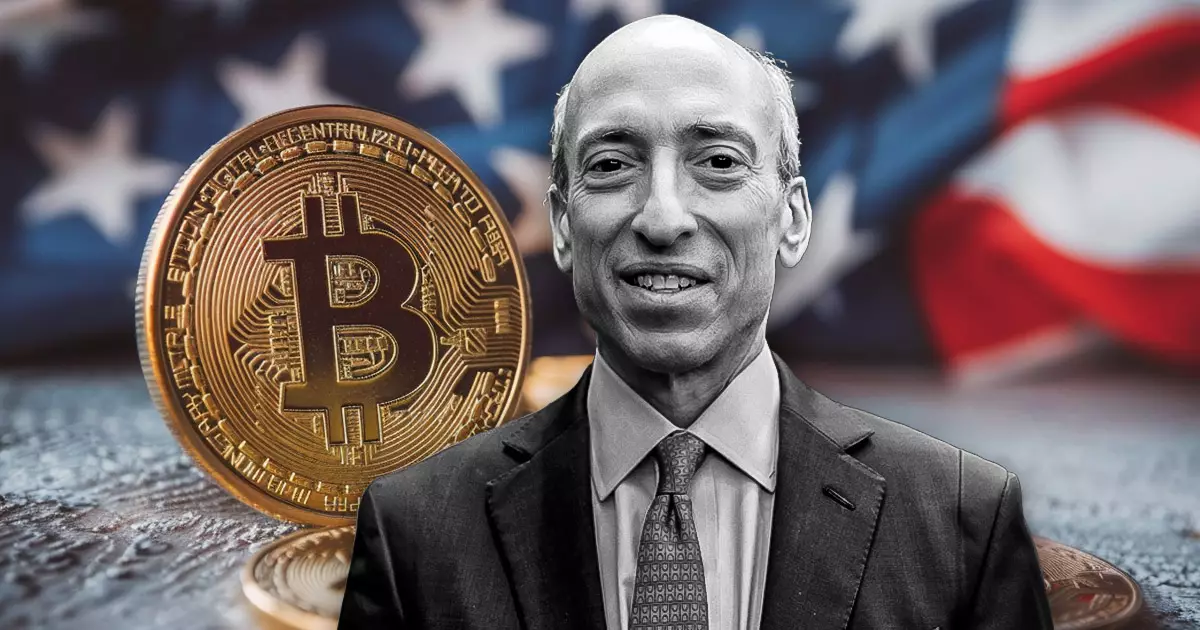On November 14, during the PLI Annual Institute on Securities Regulation, SEC Chair Gary Gensler delivered an insightful speech that illuminated the regulatory landscape for cryptocurrencies in the United States. His address conveyed not only the SEC’s regulatory priorities but also his personal reflections, perhaps suggesting a transitional phase for both Gensler and the agency. At the heart of Gensler’s message was the intrinsic distinction the SEC draws between Bitcoin—largely classified as a non-security asset—and the myriad altcoins that populate the market.
Gensler’s comments underscore an ongoing debate around the classification of digital assets, a topic that continues to dominate financial discourse. This nuanced approach signifies a critical juncture in how authorities will engage with cryptocurrencies, balancing innovation with the necessity of regulatory oversight.
Bitcoin vs. Altcoins: A Distinct Classification
Throughout his address, Gensler reiterated that Bitcoin is viewed differently from other digital assets. His assertion that Bitcoin should not be classified as a security is significant, as it sets a precedent that could influence policymakers and financial institutions alike. Gensler stated, “Not every asset is a security,” referencing the historical context provided by former SEC Chairman Jay Clayton. Such a distinction has far-reaching implications, particularly as the crypto market fluctuates and evolves.
In stark contrast, Gensler pointed out that many of the approximately 10,000 other digital assets lack the foundation to be classified separately from traditional securities. The SEC’s focus on these altcoins reflects a broader regulatory mission to implement compliance measures that protect investors. Gensler’s rationale for targeting these crypto assets hinges on the agency’s commitment to maintaining market integrity—a theme he reiterated throughout his speech.
An essential aspect of Gensler’s message was his emphasis on the importance of compliance with securities laws for fostering market trust and investor protection. By referencing historical data that supports the notion that robust regulatory frameworks lead to trustworthy markets, Gensler positioned the SEC not just as a regulatory body but as a gatekeeper for innovation and stability. His remarks offered a counter-narrative to the often anarchic reputation of the crypto space, suggesting that structured regulations might be conducive to its future growth.
However, Gensler also acknowledged a critical reality: many altcoins still face scrutiny over their lack of real-world applications, with speculative trading and unlawful activities being persistent concerns. The government’s efforts to mitigate these risks are intended to ensure that the crypto ecosystem evolves in a manner that prioritizes responsible usage and fosters genuine technological advancement.
Exchange-Traded Products: A Regulatory Shift
Gensler made notable references to the SEC’s approvals of exchange-traded products (ETPs) for Bitcoin futures and spot Bitcoin, indicating a significant regulatory shift. By endorsing these products, he highlighted a departure from the stricter stance taken by previous SEC chairs concerning crypto ETFs. This approval represents a growing recognition of Bitcoin and Ethereum as legitimate financial instruments, fostering competition and transparency in the market.
The potential benefits of these approvals could extend beyond merely offering trading options—they might also enhance investor confidence through transparency in disclosures and reduced fees. Gensler’s endorsement of these products can be viewed as an attempt to mainstream digital assets while delineating compliance boundaries for the rest of the digital asset market.
Gensler’s speech comes at a historically charged moment, following Donald Trump’s presidential election victory, which adds a nuanced layer to his regulatory outlook. Trump has openly criticized Gensler’s tenure and signaled intentions to appoint a new SEC chair, potentially shaping a markedly different regulatory environment. This looming uncertainty may explain Gensler’s reflective tone, as he reevaluates his legacy and the SEC’s mission amidst shifts in administration.
The immediate market responses—particularly the marked surge in Bitcoin prices—indicate investors’ sensitivity to political and regulatory developments. Bitcoin’s recent ascension to nearly $93,400 reflects optimism regarding potential deregulatory environments. This volatility underscores the complex interrelationship between regulatory perspectives and market dynamics—a theme that Gensler seems keenly aware of.
As he concluded his address, Gensler’s reflections on the importance of securities regulation resonated as a final homage to his experiences at the SEC. Despite his enthusiastic advocacy for Bitcoin and Ethereum, sentiments from industry stakeholders like Coinbase and Kraken reveal an underlying skepticism regarding his regulatory overtures. These players may remain unconvinced by Gensler’s optimistic pitch, particularly as they navigate an evolving and often uncertain regulatory landscape.
In essence, Gensler’s tenure, whether it extends or concludes imminently, has undoubtedly left profound marks on the crypto sector. The SEC’s approach under his guidance has established pivotal precedents that will shape the future of digital assets, ensuring that the dialogue around cryptocurrency regulation evolves continuously. The intersection between innovation, regulation, and market sentiment is foreboding yet ripe with potential—one that will demand ongoing scrutiny and adaptation.


Leave a Reply